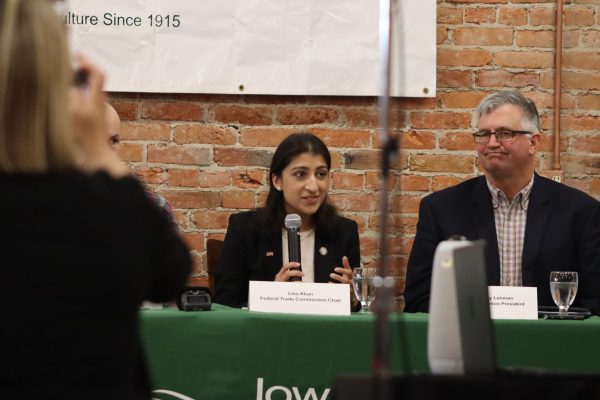ISU prof to speak on GMOs in New Zealand
November 8, 2000
An ISU professor will be traveling halfway around the world to provide an international perspective on genetically modified crops.
Gary Comstock, professor of philosophy and religious studies, is going to New Zealand to share his research on life science ethics with the country’s Royal Commission.
While the scientific advancement is not a new trend in the United States, Comstock said he is not sure how the New Zealand government will react to genetically modified crops since it has an organic farming culture.
“We have been eating GM foods on a wide scale for about four years,” he said. “One of the most controversial of contemporary technologies is the genetic modification of the environment. Animals are being cloned, genes from humans are being inserted into hogs and consumers in the United States are eating genetically engineered foods that are not labeled.”
Comstock compiled his expertise in his recent book “Vexing Nature? On the Ethical Case Against Agricultural Biotechnology.” He said the book, which was released on Oct. 27, is a philosophical exploration of genetically modified crops and complex ethical issues.
Comstock said the book explores the possibility of scientists creating new genetically modified diseases in humans, an environmental catastrophe or bizarre new lines of animals possessing genes taken from humans.
“I’m interested [in genetically modified organisms] because I used to be opposed to GM crops because I thought they would be harmful to family farmers,” he said.
Comstock said he has concerns about potential consequences of agricultural biotechnology.
Gary Varner, associate professor of philosophy at Texas A&M University, said the terms natural and unnatural can be used in a variety of ways.
“In some senses it’s impossible for humans to act unnaturally; in others it is impossible for humans to do anything but act naturally,” he said. “I believe that fears of cloning, specifically, may be exaggerated by confusion with genetic engineering or gene splicing.”
Once tempted to oppose all uses of genetic engineering in agriculture, Comstock said he began to believe that many uses are morally justifiable and even required.
“Morally justifiable uses are when we produce products that are environmentally friendly, help to feed hungry people and reduce pesticide use,” he said.
















